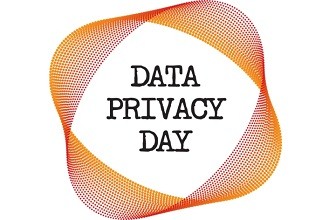Identity theft is a crime with many faces: from the thief who your skims your card info at the ATM, to the hacker who assumes your persona and opens accounts in your name.

Today is Data Privacy Day. And though most if not all of us will experience identity theft, we are all able to survive it.
Unfortunately, rectifying identity theft damage can be like untangling a wet knot. You can do it but it will require patience and perseverance. There is hope!
Start by committing yourself to becoming and remaining organized. Keep copies of letters and emails. It doesn’t hurt to maintain a verbal correspondence and/or other logs. File paperwork immediately and store everything in a safe, accessible place.
Step One: Creditors and Financial Institutions
If accounts are abused or opened illegally, contact your creditors ASAP. Ask for fraudulent transaction documentation as you’ll likely need to file a police report. Add “non-guessable” passwords to replacement cards and all existing accounts.
If a collection agency attempts to collect on a fraudulent account, explain (in writing) that you are a victim of identity theft and not responsible for the debt. Ask they confirm in writing that you do not owe and that the account has been closed.
For checking account fraud, contact your financial institution to place stop payments on any outstanding checks that you did not write. Report the crime to check reporting agencies. If the fraud is extreme, consider canceling your checking and savings accounts. Obtain new account numbers and passwords. Monitor all future account statements carefully.
Step Two: Legal and Government Agencies
Report the crime. File a report with your local police or sheriff’s department (or wherever the identity theft took place). Request a copy of the report. Additionally, keep the phone number of your investigator handy.
Create an Identity Theft Report with the Federal Trade Commission (FTC). This is the combination of the Identity Theft Affidavit. You’ll file this with the FTC, and the police report. For additional documentation you may pursue a Consumer Financial Protection Bureau investigation.
Notify your local postal inspector if someone else has used your address. The social security administration should be alerted if your social security number has been fraudulently used.
Step Three: Credit Reporting Bureaus
The most arduous task in this process may be ensuring that your credit report lists only factual information. Obtain your credit report from each of the three major credit bureaus (if you are married, your spouse should also check their report).
If the fraudulent information hasn’t yet appeared on your credit reports, be proactive. Report the crime now. Contact one of the bureau’s fraud departments to request an extended fraud alert be added to your file for seven years rather than the normal 90-180 days. Confirm that the bureau you’ve filed the fraud alert with will contact the other two bureaus and to place the fraud alerts.
Write a victim’s report. This is a brief statement describing the details of the crime. Send your report to the bureaus. The first credit reports with fraud alerts are free and are sent automatically. Next, check your credit report every three months to ensure accuracy.
Healing the wounds of identity theft will take time and work. The sooner and more aggressively you deal with the problem, the faster you will see results. Remember, Wauna Credit Union is also a fantastic resource and we are here for you!

